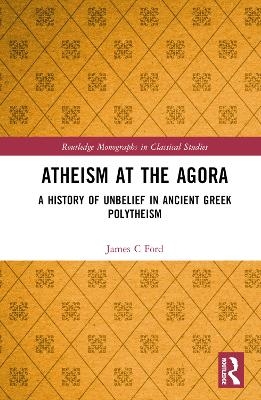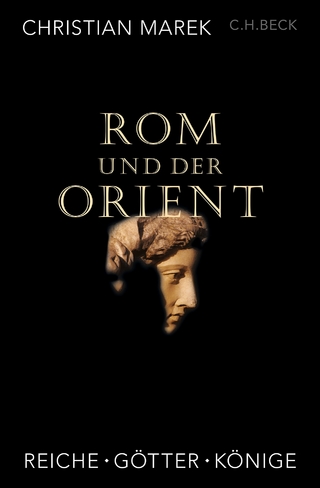
Atheism at the Agora
Routledge (Verlag)
978-1-032-49299-5 (ISBN)
This fresh, comprehensive study of ancient Greek atheism aims to dismantle the current consensus that atheism was ‘unthinkable’ in ancient Greece, demonstrating instead that atheism was not only thinkable but inextricably embedded in the Greek religious environment.
Through careful analysis of a wide range of source material provided in modern English translation, and drawing on philosophy, theology, sociology, and other disciplines, Ford unpicks a two and a half thousand-year history of marginalisation, clearing the way for a new analysis. He lays out in clear terms the nature and form of ancient Greek atheism as the ancient Greeks conceived of it, through a series of themes and lenses. Topics such as religious socialisation, the interaction of atheist philosophy and theology, identity formation through alterity, and the use of atheism in scapegoating are considered not only in broad terms, using a synthesis of modern scholarship to mark out an overview in line with modern consensus, but also by drawing on the unique perspective of ancient atheism Ford is able to provide innovative theories about a range of subjects.
Atheism at the Agora is of interest to students and scholars in Classics, particularly Greek religion and culture, as well as those studying atheism in other historical and contemporary areas, religious studies, philosophy, and theology.
Dr James C Ford is the director of Stoa Strategy Ltd and an honorary fellow at the University of Liverpool, in the United Kingdom. He has previously held teaching, research, and curatorial roles at Lancashire County Council Museums and the Universities of Liverpool, Manchester, and Oxford. Ford has written and spoken on a range of topics including witchcraft and alterity, PTSD and memorialisation as healing for psychogenic injuries in the ancient world, Herodotus and unknowability, and LGBT history in Lancashire: his main research interests are in historical atheism.
1. Introduction: Clearing the landscape of Greek atheism; 2. Foundations: Learning (un)belief in the Greek religious environment; 3. Morality: Atheist ethics and immorality in the Greek imagination; 4. Theology: Discourses of (a)theology and the evolution of Greek belief; 5. Unknowability: The piety of agnosticism in Greek philosophy and practice; 6. Othering: Mediating the legitimacy of (a)theism and the creation of Greek identity; 7. Scapegoats: The threat of atheism to the ancient Greek city; Conclusion: Belief in unbelief.
| Erscheinungsdatum | 15.08.2023 |
|---|---|
| Reihe/Serie | Routledge Monographs in Classical Studies |
| Verlagsort | London |
| Sprache | englisch |
| Maße | 156 x 234 mm |
| Gewicht | 562 g |
| Themenwelt | Geschichte ► Allgemeine Geschichte ► Altertum / Antike |
| Geisteswissenschaften ► Philosophie ► Philosophie Altertum / Antike | |
| Geisteswissenschaften ► Religion / Theologie | |
| ISBN-10 | 1-032-49299-6 / 1032492996 |
| ISBN-13 | 978-1-032-49299-5 / 9781032492995 |
| Zustand | Neuware |
| Informationen gemäß Produktsicherheitsverordnung (GPSR) | |
| Haben Sie eine Frage zum Produkt? |
aus dem Bereich


